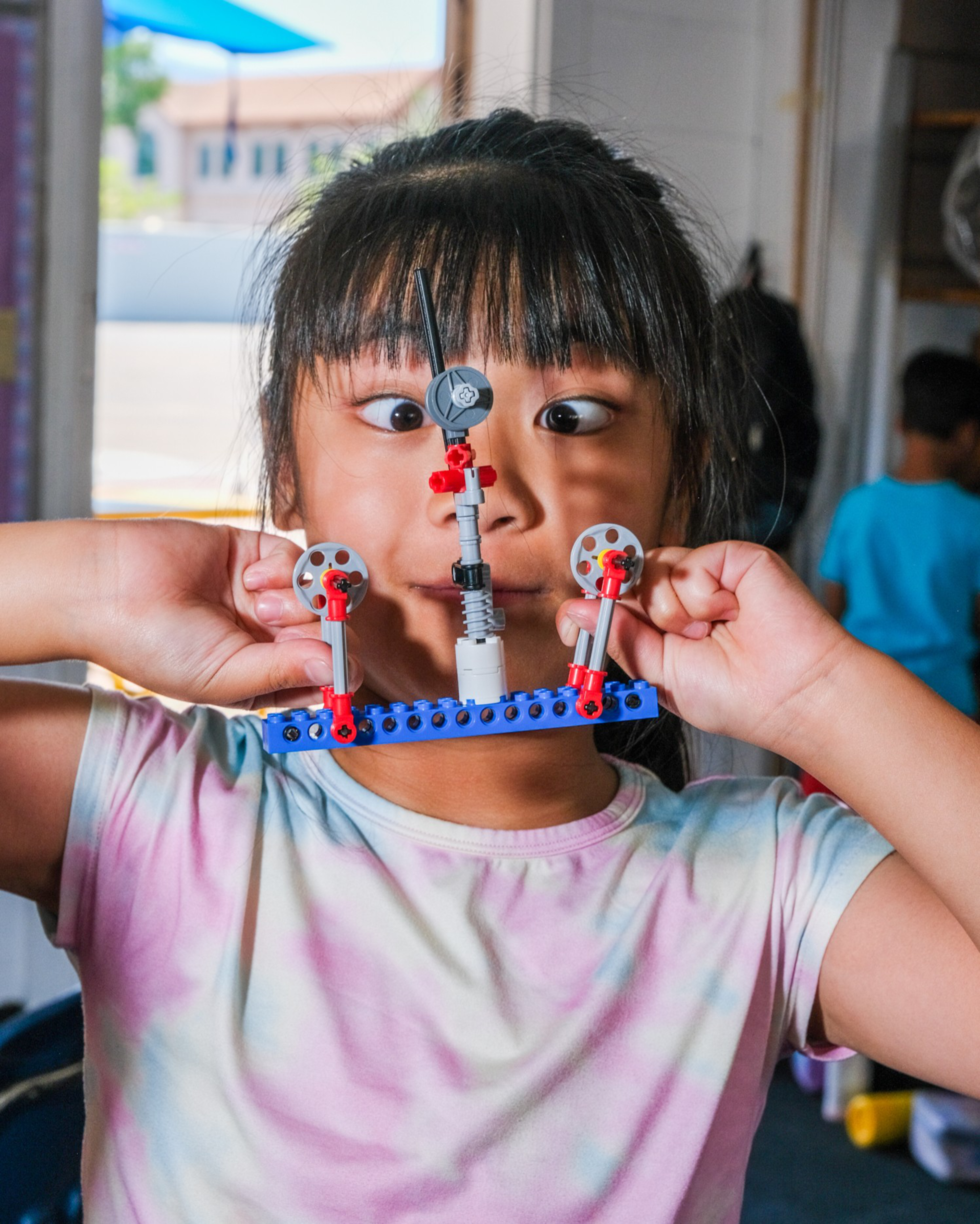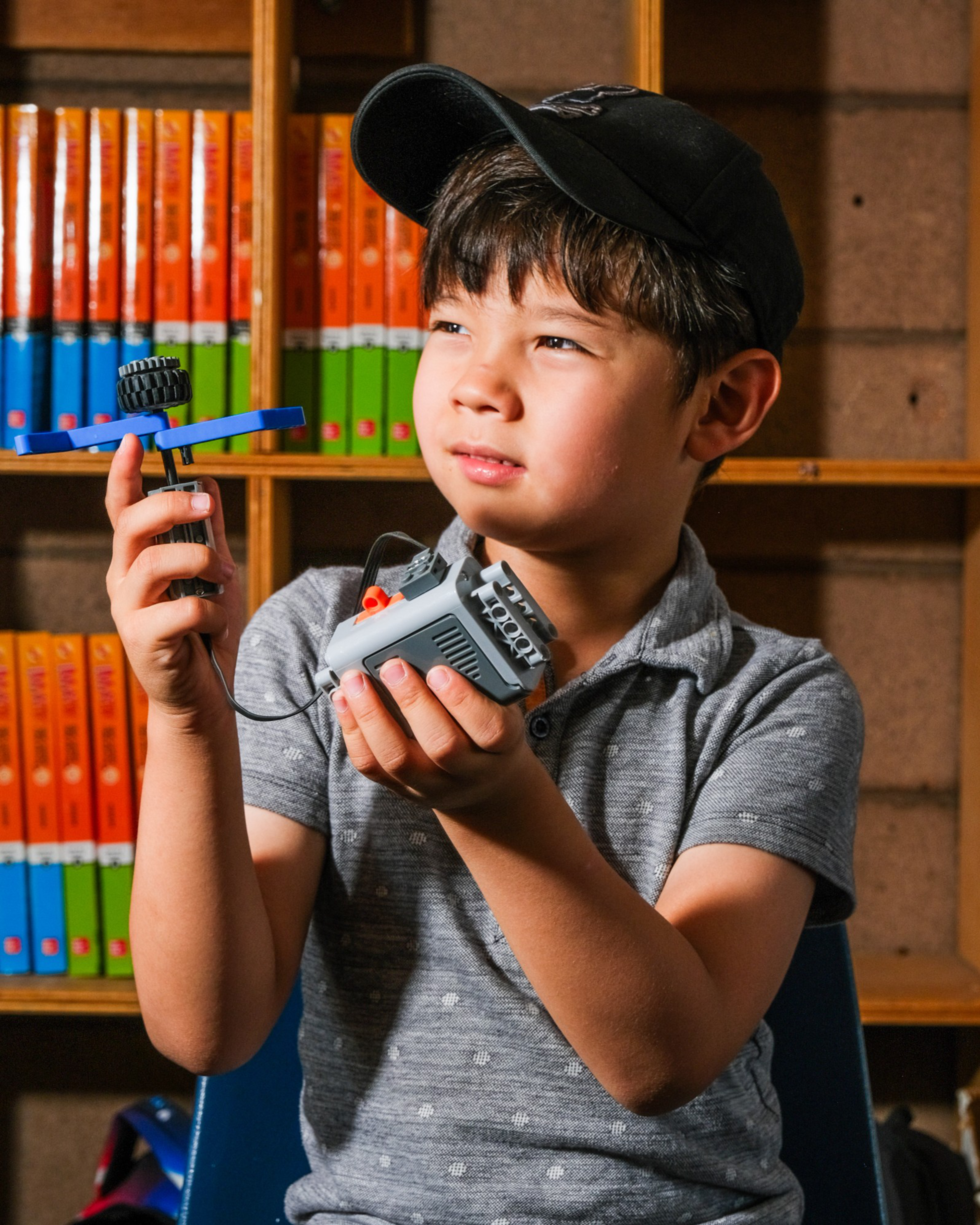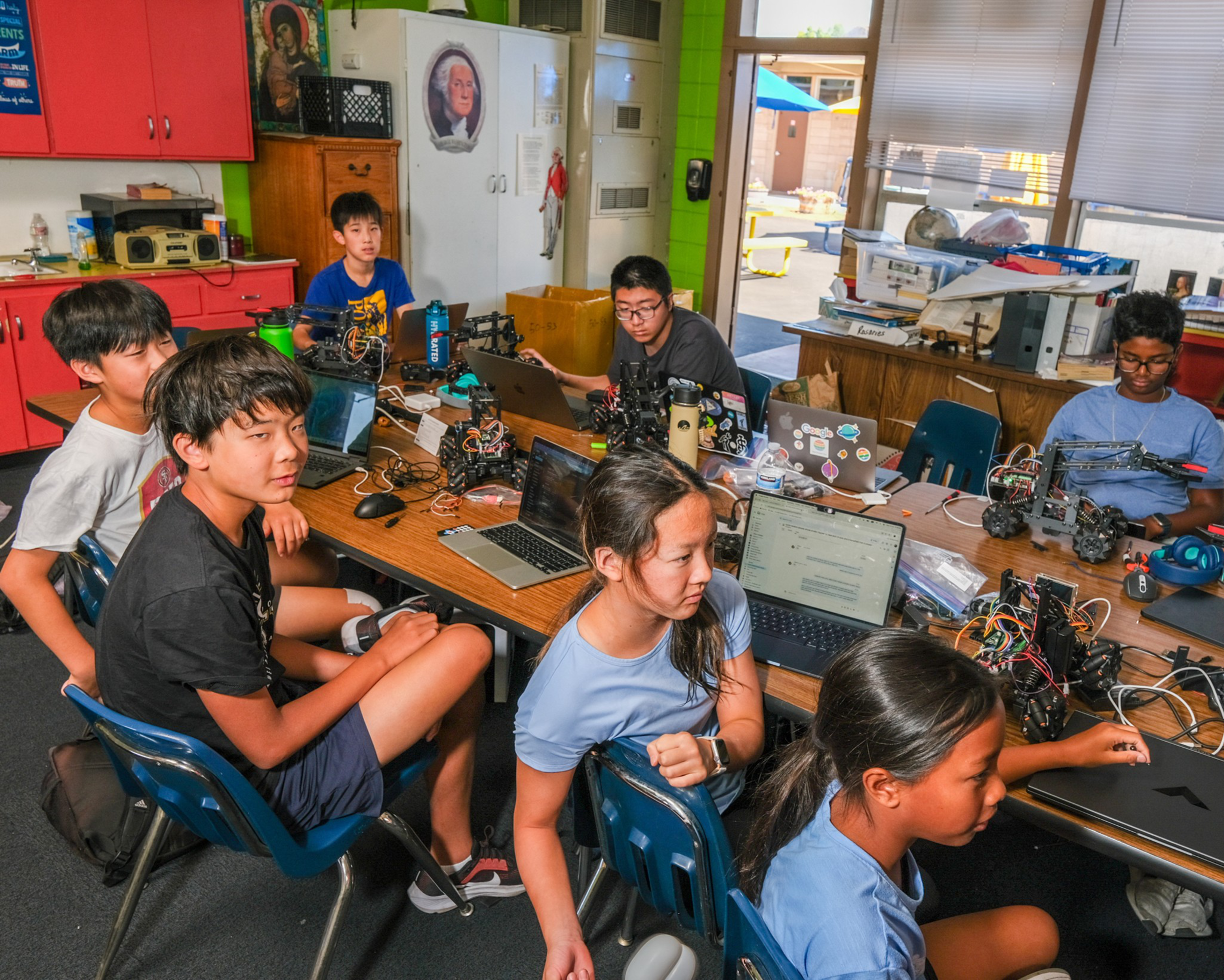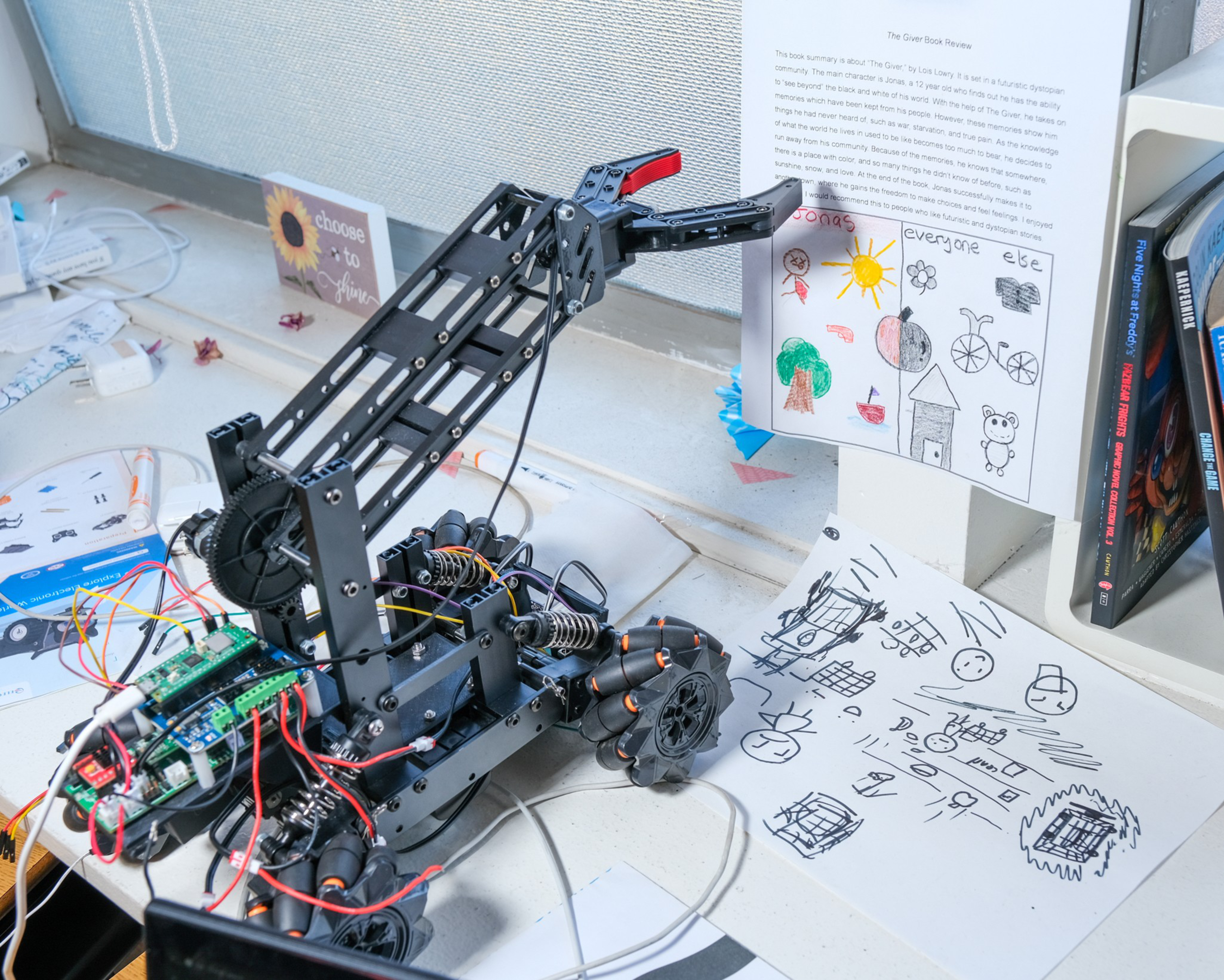AI obsession is spreading in Silicon Valley — so much so that some parents are sending children as young as 5 to summer camps that focus on the technology.
It’s common for kids on summer break to attend space, science or soccer camp, or even go to coding school. But the growing effort to teach kindergarteners who can barely spell their names lessons in “Advanced AI Robot Design & AR Coding” shows how far the frenzy has extended.
“Parents love hearing AI,” said Ann Sasi, a tech camp teacher for Integem who studies computer science at UC Santa Cruz. “A lot of kids this young have a hard time reading, so they have a very hard time typing.”
Still, Sasi noted, they can grasp the concept.
“They’ll understand that my computer’s brain is learning. But how do I type that? That’s the hard part,” Sasi said. She introduces coding to small children just as she would any other language.
“If I visit Spain and talk to an old man who only speaks Spanish and ask him to do 10 jumping jacks, will he understand me? No, I have to speak Spanish,” she tells kids. “The computer will only speak its computer languages.”


Parents who previously would opt for coding camps are increasingly interested in AI-specific programming, according to Eliza Du, CEO of Integem, which makes holographic augmented reality technology in addition to managing dozens of tech-focused kids camps across the country.
“The tech industry understands the value of AI,” she said. “Every year it’s increasing.”
Some Bay Area parents are so eager to get their kids in on AI’s ground floor that they try to sneak toddlers into advanced courses. “Sometimes they’ll bring a 4-year-old, and I’m like, you’re not supposed to be here,” Du said.
Du said Integem studied Common Core education standards to ensure its programming was suitable for those as young as 5. She tries to make sure parents understand there’s only so much kids can learn across a week or two of camp.
“Either they set expectations too high or too low,” Du said of the parents. As an example, she recounted a confounding comment in a feedback survey from the parent of a 5-year-old.
“After one week, the parent said, ‘My child did not learn much. My cousin is a Google engineer, and he said he’s not ready to be an intern at Google yet.’ What do I say to that review?” Du said, bemused. “That expectation is not realistic.”
Even less tech-savvy parents are getting in on the hype. Du tells of a mom who called the company to get her 12-year-old enrolled in “AL” summer camp. “She misread it,” Du said, explaining that the parent had confused the “I” in AI with a lowercase “L.”


A foundation model
On a sweltering July day in Cupertino, about 20 kids ages 5 to 8 sat on the floor in a circle inside a classroom with no air conditioning. Sasi, the teacher, asked them to introduce themselves and share what they wanted to be when they grow up. A couple selected the standbys of astronaut or veterinarian, but several were more specific, saying they wanted to be engineers and make robots.
The students were then divided into groups. Some used Lego blocks to learn how to build robots, connecting the plastic gears to a motor. Another group learned how to train AI models, lifting objects up to their laptop screens to see if the program’s computer vision could identify them.
“I love it. I like the typing and the pictures,” said 8-year-old Micaela, while using a game design tool on her laptop to create questions and responses for players to answer. She set the system to show fireworks if the user answered questions correctly and an “oops” for errors. On her screen was an animated image of a castle in the middle of a body of water, along with a boat.
“It’s fun playing my own games,” Micaela said, highlighting her love of the colors and fonts she chose.


Her father, Timothy Lu, an engineer at the semiconductor company Marvell Technology, said he saw a sign for the camp posted at his daughter’s school. Obviously, given his own proclivity for tech, “I’d like my kid to get involved,” he said, but most importantly, he hoped she was having fun.
“It’s good for her down the road,” Lu said. “It’s a part of learning and exploring.”
Two classrooms down, middle school children installed software to train preassembled robotic vehicles to recognize objects such as a rubber ducky and use their arms to drop the objects into a bucket.
The camps are part of Integem’s offerings for kids from kindergarten through high school; among the programs are “AI Robotics Engineering with AR Coding” and “Intro to AR Art with AI.”
Winfred Lin, a 17-year-old assistant at the camp, is a former participant. He attended an Integem robotics camp two years ago, training AI models using Nvidia’s tiny Jetson Nano computers. The experience sparked a love of game development and opened his eyes to the benefits of getting children acquainted with computer science at a young age.
“In the future, it’s not just going to be software engineers doing computer science. It’s everybody,” Winfred said. “It’s like learning a new language. If you start younger, you learn more naturally.”


Camp-goer Hibiki, 6, is proof. Asked what he wants to be when he grows up, he proudly stated that he wants to be an engineer just like his dad. His mom, Ryoko Minemura, smiled when she heard this and said he must be enjoying the camp experience.
“He was talking about being a dentist last week,” she said.
Du, who runs the camps, has a doctorate in AI engineering and taught at Purdue University before moving to Silicon Valley to take a job at Qualcomm. She started Integem in 2015.
The company’s camp division was started after the children’s clothing company Gymboree, which also holds classes and other programming, inquired if it could develop educational content. Du said that this year around 30,000 kids will utilize Integem’s educational programming — including software that shows them how to train AI models.
She said one reason Integem offers programming for all ages is to provide parents a one-stop-shop for all their kids, versus having to drop them at multiple camps.


Fees for the camps start at close to $600 per week, though Integem sometimes offers scholarships, Du said.
After a few 30-minute breaks and an hourlong lunch — during which many of the AI workforce-in-training ran to the play set outside — a handful of the dialed-in students continued designing games on their laptops.
But more found their attention waning and pivoted to drawing, crawling around the floor and climbing on top of desks.
One kid searched “sharks butt” into the game design tool’s image gallery. Disappointingly, there were no results.
